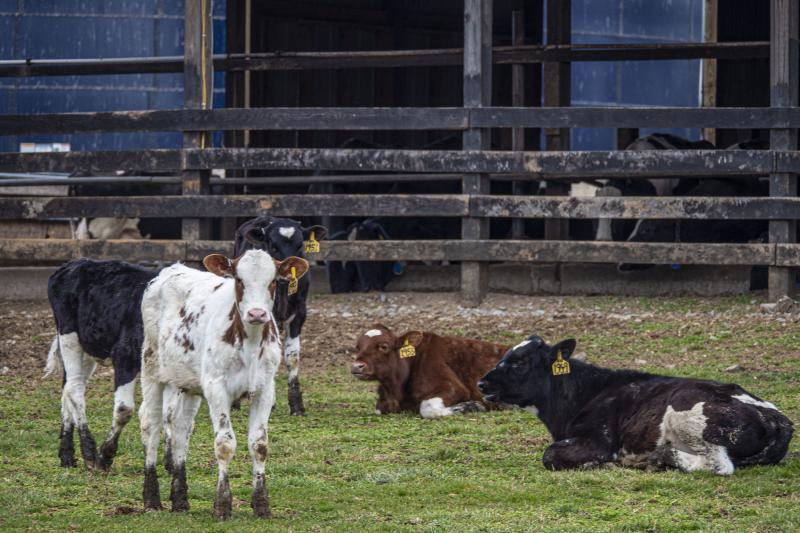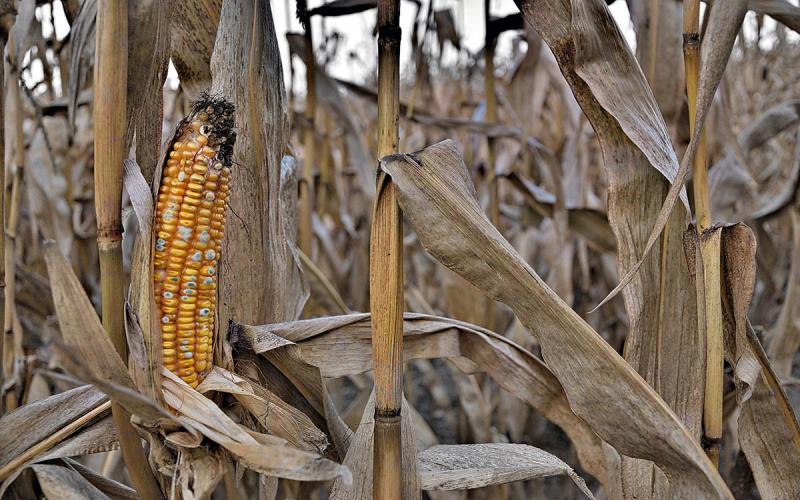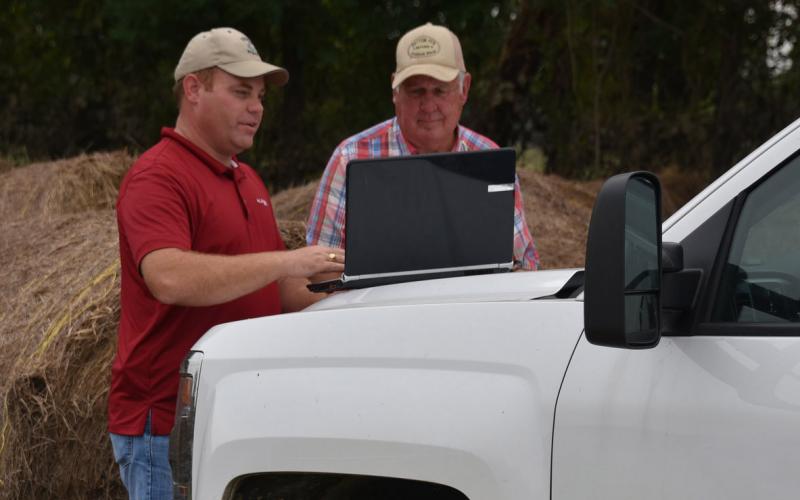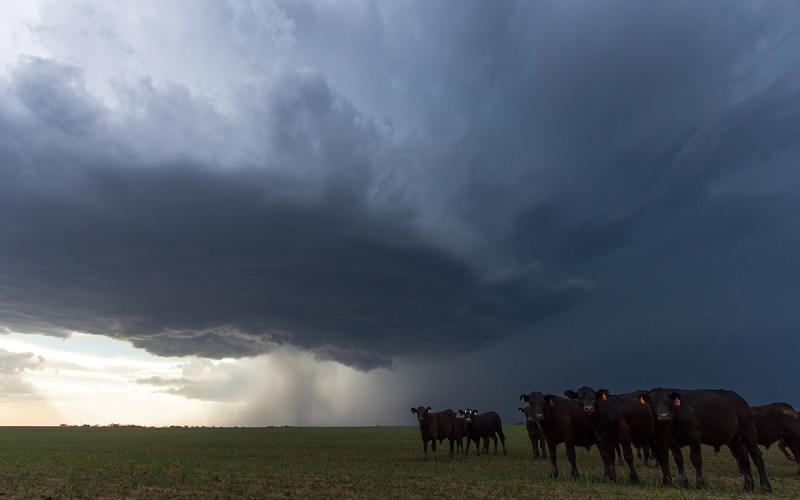
Written collaboratively by Heidi Carroll, former SDSU Extension Livestock Stewardship Field Specialist & Beef Quality Assurance Coordinator, and Kimberly Clark.
The FARM (Farmers Assuring Responsible Management) Animal Care Version 4 rolled out January 2020. Version 4 will remain in effect through June 30, 2024, instead of the traditional 3-year update cycle, due to the COVID-19 pandemic.
As dairies have their farms evaluated with this version, there may be questions about corrective actions. This article will outline corrective actions within FARM Animal Care evaluations, the general timeline of each corrective action, and provides examples for corrective actions. Finally, there is a summary table of corrective actions.
The FARM program refers to individual dairy farm sites as “facilities” in their documents. In this article, we will not use the term facilities, but dairy or farm interchangeably.
It is critical to reach out directly to your FARM Evaluator, co-op, and/or processor with questions or concerns regarding specific corrective actions and the timelines laid out for you. The FARM Evaluator should clearly communicate program expectations and the timeline for resolving corrective actions upon completion of your dairy’s evaluation. Before your evaluator leaves your farm clarify how they will communicate with you regarding the resolution of any corrective actions - emails, phone calls, mailing copies of items, or an in-person follow-up visit. You should receive a copy of your report which summarizes the findings of the evaluation.
Corrective Actions
Immediate Action Plan (IAP)
Immediate action plans require that a standard is met immediately. In Version 4, the only criterion that initiates an IAP is continuing to dock tails. If a dairy fails to meet this standard, it will be placed on Conditional Certification for 48 hours, or less, until the standard is met. Upon resolving the IAP (i.e. stop tail docking), the dairy will be placed in good standing and be considered Certified. If the standard is not met within 48 hours, the farm will be Conditionally Decertified until the standard is met.
Even if the IAP is resolved within 48 hours, Evaluators will follow-up at 1-week, 1-month, and 3-month intervals to ensure the standard continues to be met. Producers need to be cognizant that if they choose to become Conditionally Decertified, a FARM participant, who is the co-op or processor, will not be able to procure milk from the facility.
Mandatory Corrective Action Plan (MCAP)
When an MCAP is received, the issue must be resolved within 9 months of the evaluation. If the issue is not resolved within 9 months or the timeline determined by the processor or coop, the dairy will be placed on Conditional Certification. Upon resolving the MCAP, the dairy will be placed back in good standing and be considered Certified.
The animal care standards within the MCAPs include:
- Veterinarian Client Patient Relationship form signed annually.
- Written Herd Health Plan reviewed and signed annually by the veterinarian.
- Pre-weaned Calf Practices AND Protocols including:
- How calves are moved.
- Volume and quality of colostrum, milk/milk replacer provided within 6 hours of birth.
- Disbudding of calves prior to 8 weeks of age.
- Feed and water access by day 3 of age.
- Acceptable Non-Ambulatory Animal Protocols AND Practices including:
- Moving using proper methods.
- Providing prompt medical care.
- Providing access to feed, water, protection from weather, other ambulatory animals and predators.
- Acceptable Euthanasia Practices AND Protocols including:
- Criteria established for the identification of animals to be euthanized.
- Euthanasia techniques follow the approved methods of AABP and/or AVMA.
- Carcass disposal is conducted using appropriate methods for the dairy’s location.
- Acceptable Fitness of Transport protocol addressing eligible animals and adhering to withdrawal times for meat and milk.
- Feed AND water access for all age classes.
- Annually signed cow care agreement for any NON-FAMILY employees with animal care responsibilities.
- Continuing education annually including:
- Animal care and handling education for NON-FAMILY employees with animal care responsibilities.
- Job specific continuing education for NON-FAMILY employees if they are responsible for:
- Pre-weaned calf care.
- Non-ambulatory animals.
- Euthanasia.
- Determining animals are fit to transport.
Example: The Evaluator observes the dairy has a Herd Health Plan that has not been reviewed and signed in the last year by their veterinarian of record. The Evaluator also observes calves older than three days did not have water. Lastly, the existing written protocol for when newborn calves receive colostrum and how much is not being implemented by employees as written in the protocol. The Evaluator issues three MCAPs for this dairy: 1) Herd Health Plan needs to be signed annually by the veterinarian of record; 2) calves older than three days need to have access to water; 3) the written protocol and how employees implement the newborn calf feeding practices need to match. The Evaluator determines all three of these corrective actions need to be resolved in 6 months instead of the maximum 9-month time limit. The Evaluator will visit the farm 6 months after the corrective actions were issued to ensure these three items were resolved.
Continuous Improvement Plan (CIP)
This corrective action needs to be resolved in three years or less as determined by your Evaluator. If the action is not resolved in the determined amount of time, the dairy will be placed on Conditional Certification leading to Conditional Decertification if standards remain unmet after the designated time frame. Upon resolving the CIP, the dairy will be placed in good standing and be considered Certified.
The animal care standards within the CIPs include:
- Animal observation benchmarks met for (benchmarks listed in more detail in Preparing for FARM Animal Care Evaluations)
- Body condition score.
- Hock/Knee lesions.
- Locomotion.
- Broken tails.
- Pain management Practice AND Protocol for disbudding:
- Pain mitigation is expected to be used when disbudding calves for any method (cautery, paste, etc.).
- Producers need to work with their veterinarian to determine the appropriate pain mitigation to use for disbudding.
- Permanent drug treatment records (written or electronic) are maintained and available for review by veterinarian of record.
- Annually signed cow care agreement for FAMILY employees with animal care responsibilities.
- Continuing education annually including:
- Continuing animal care and handling education for FAMILY employees with animal care responsibilities.
- Job specific continuing education for FAMILY employees if they are responsible for:
- Pre-weaned calf care.
- Non-ambulatory animals.
- Euthanasia.
- Determining animals are fit to transport.
Example: During the same evaluation described above, the Evaluator read in the written protocols that pain mitigation is to be used when disbudding calves; however, employees were disbudding without pain mitigation. Also, there is no record of continuous education for family employees performing calf care tasks. The Evaluator issued two CIPs: 1) the written protocol and practice for disbudding calves need to match and 2) family employees will receive annual continuous education in their respective areas of work. The Evaluator determines the deadline to resolve the pain mitigation for disbudding within two years and documentation of annual continuous training within three years.
Given this dairy’s evaluation example, the Evaluator will follow-up with the dairy farm in 6 months to verify the herd health plan is reviewed and signed by the veterinarian of record, calves older than three days of age have access to water, and the protocols and practices for calf care match each other. Additionally, the Evaluator will follow-up with the dairy two years after the evaluation to verify the written protocol and practices for disbudding match. The CIP for annual continuous education of family employees would be verified during the next routinely scheduled FARM Evaluation since on-farm evaluations are performed on a three-year rotation. At each visit, the Evaluator will only verify the corrective action items which are due.
Certification Terminologies
Certification
A dairy farm is considered certified in the FARM Animal Care Program if it:
- Is up to date with the FARM Animal Care Program evaluation in accordance with the program evaluation cycle.
- Does not have any overdue corrective action plans.
- Is not subject to the FARM Willful Mistreatment Protocol.
Conditional Certification
- If the dairy receives a MCAP or CIP and does not resolve the issue within the designated time as determined by the Evaluator, the dairy will be placed on Conditional Certification status for up to 60 days.
- When the MCAP or CIP is resolved by the established timeline, the dairy will be placed back in Certification status.
- The dairy can continue to milk and operate while Conditionally Certified and remains in good standing with the FARM program.
- If the dairy receives an IAP, it is immediately placed on Conditional Certification up to 48 hours. When the IAP is resolved, the dairy is moved to Certification and will receive follow-up at 1-week, 1-month and 3-month intervals to ensure the standard continues to be met.
Conditional Decertification
- When a dairy receives Conditional Certification and has NOT resolved the issue within the 60-day period, the dairy will be placed on Conditional Decertification.
- While in Conditional Decertification, milk from the dairy will NOT be procured by the processor or cooperative that is participating in the FARM program. A dairy must resolve the issue to be removed from Conditional Decertification and move back to Certification.
Summary
To help decrease the chance of receiving any corrective action plans, take the time to prepare for your evaluation. A summary article is also available, but it is only the starting point in preparing for your FARM Animal Care Evaluation. We encourage you to consult with your FARM Evaluator, co-op/processor representative, or veterinarian to review any previous evaluation reports for your farm. Additional FARM Animal Care Version 4 resources and downloadable templates, available in English and Spanish, can be accessed at the National Dairy FARM website.
A binder to guide you in preparing for the FARM V4 evaluation is available for purchase at the South Dakota State University Bookstore. Contact Heidi Carroll for more information or to work one-on-one preparing for an evaluation.
Table 1 provides a summary of each corrective action, standards that trigger each corrective action and the maximum amount of time to resolve each corrective action.
| Corrective Action | FARM Animal Care V4 Standard |
to Resolve |
|---|---|---|
| Immediate Action Plan (IAP) |
|
|
| Mandatory Correction Action Plan (MCAP) |
|
|
| Continuous Improvement Plan (CIP) |
|
|
References
- FARM Animal Care Version 4.0 (2020) National Dairy FARM Program.
- FARM Animal Care Version 4.0 Requirements & Corrective Actions (2020) National Dairy FARM Program.
- FARM Animal Care Evaluation Preparation Guide (2020) National Dairy FARM Program.


